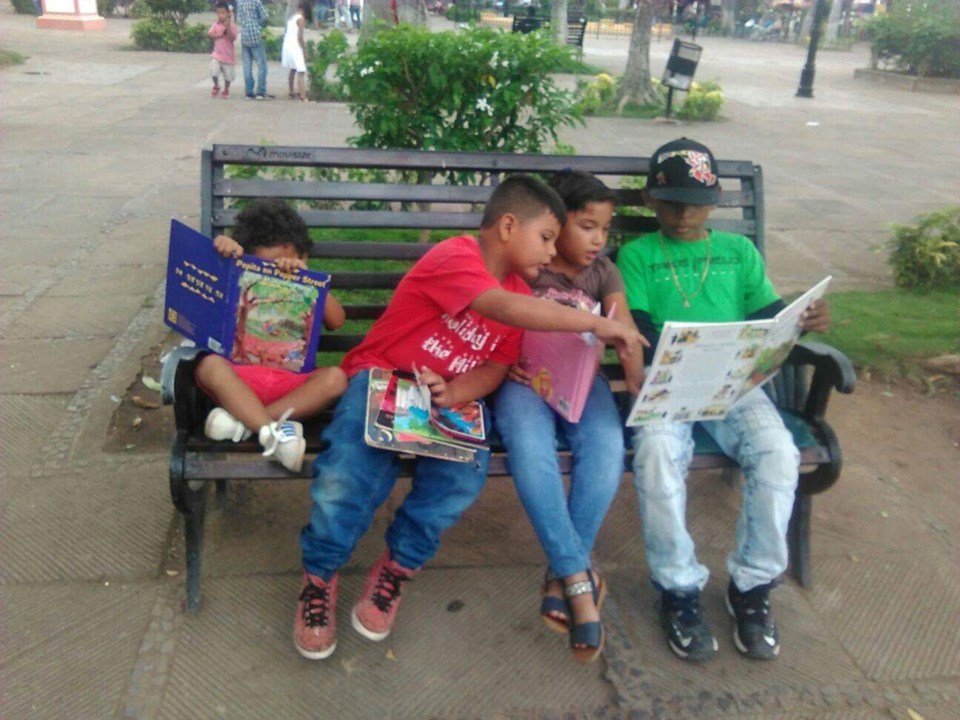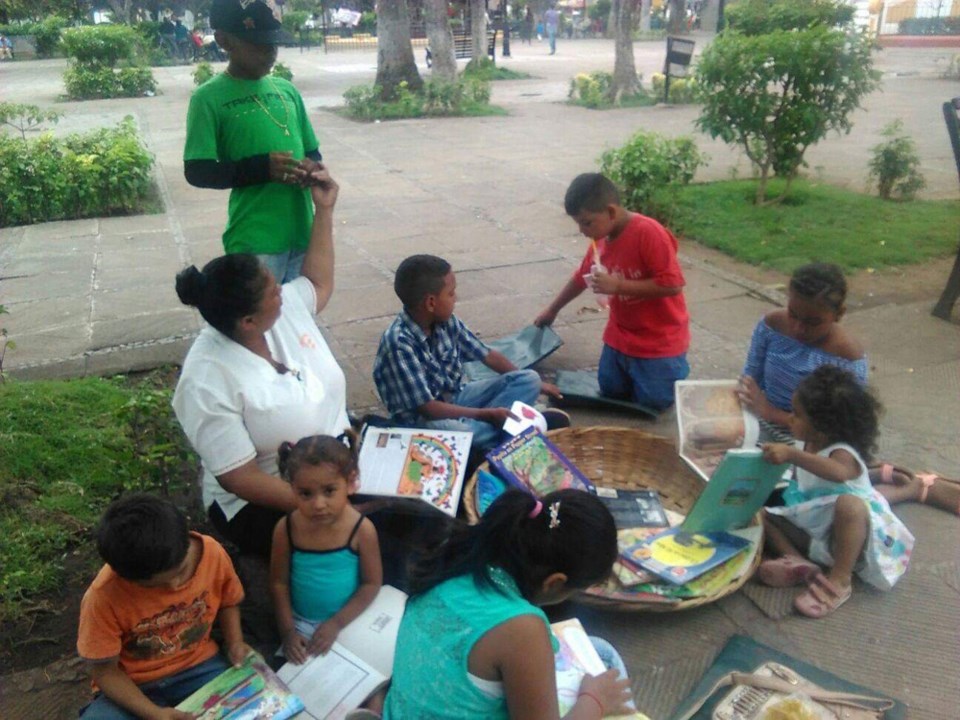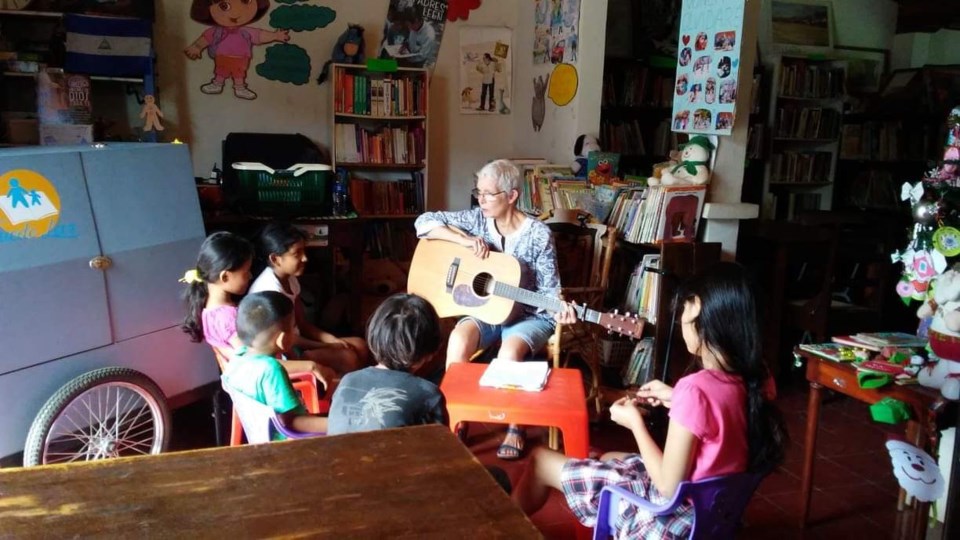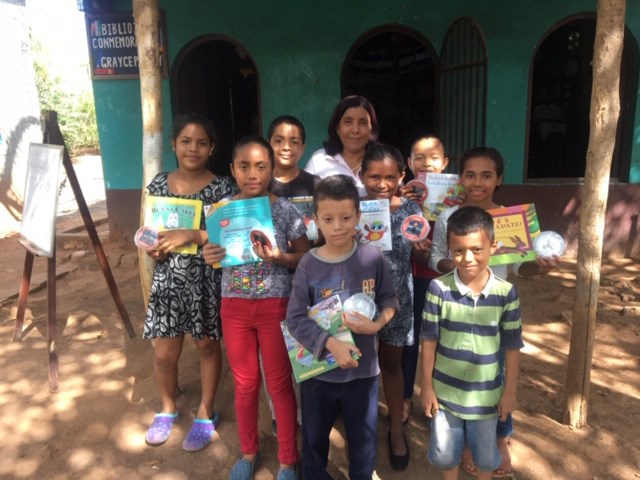Carol Ann Rea is feeling colder than she has in a long while. She is dressed in fleece and puffy vest on the warm late September morning. She hunches over to create more heat as she chats, rubbing her arms.
As her tanned face hints, Rea, a retired Squamish teacher, has been living primarily in the sunny clime of Granada, Nicaragua since 2003.
She is back in town for a visit and stopped in to chat with The Chief about her passion project — spreading the love of books and reading to children in her new home.
When she moved to the sunny Spanish-speaking city, she met up with a group of like-minded expats who decided to start a lending library for the children in Granada.
They began Puedo Leer Library and are hoping for local support for the project.
What follows is an edited version of the recent conversation.

Q: When did you come to Squamish and why?
A: I came in 1994, I was hired by the school district to be the co-ordinator for gifted programs. I travelled up and down all the way to Pemberton. After a while, the government money was withdrawn and then the students came to me. It was really exciting and I really enjoyed it. Eventually, though, the money was completely withdrawn for gifted programs and I was put back in the classroom. I was at Garibaldi Highlands Elementary School for my last three years. I retired in 2002.
It was a really powerful time in my professional life. I met so many students and teachers.
Q: So much of Squamish has changed since your time here. What do you make of it?
A: I just drove around and was looking for points that I recognized. There are still some, but, oh my! So much change. It is very different. But everything is changing, I don't have any problems with it, it just came out of the blue for me. It is a bit sad, in a way. It was such a little funky town.
Q: So how did you end up moving to Nicaragua after you retired?
A: I went to Nicaragua back in the 1960s for a year. I worked for a Canadian company and taught Canadian children there. I built up a relationship with the country. I was in my 20s then and the people were very kind and giving. I was just enamored with the whole culture.
When I retired I decided I would go back. I took a couple of holidays there first and then decided to find something I could do there.
I was going to give it two years. if I didn't like it after that, I would leave. I have been there for 16 years.
I met a like-minded group of people there and we decided to start a lending library to put books in the hands of kids. It is the second poorest country in the western hemisphere, second only to Haiti.
Our goal is to spread the love of reading and books to the children. They don't have books in their homes because they are too expensive. Lots of parents don't read. At the only library there before, you couldn't borrow the books. You could only go there and sign out books and stay there to use them. You couldn't browse. There'd be a librarian who you would tell what you wanted and why. He — and it was always a he — would pick what he thought would work. We wanted children to have access to books and to take them home and share them.
We are now opening our third lending library in Granada.

Q: Tell me more about what you have done?
A: We have one lending library out in a barrio that is very poor, one in a lower-middle-class area, and one that is going to be in a new community centre that the Germans are building. There used to be a coffee shop there and they have given it to us to open a library right in Granada.
Q: Where do you get the books from?
A: People send them. A fellow from Princeton University, for example, has a fundraiser and sends down books. We used to tell people coming on holiday to bring books — we used to have much more tourism there than there is now.
We probably have about 10,000 books in Spanish. We also have adult books. We have a children's English section.
One of our programs is lending books to 22 schools so the teachers had a book to read to their classes on a daily basis.
When we get donations of say $800, we put a little bookshelf full of books in a classroom. And the teachers get a one day workshop on how to use it and how to read to children.
We take books to the park every Saturday, for children to read.
It is not part of the culture, like it was for me growing up in England, to travel to the library if it is outside the community. I used to take a bus to the library with my parents. But that is not the culture there. So we bring the books to them, as much as we can.

Q: How has the feedback been?
A: We do incentives to encourage the children to read. We originally put kids' names up when they read a certain number of books. Currently, we have a program where kids can go 'shopping' for small prizes — pencils, erasers, little toys — when they read a certain number of books. There's currency for the library. They have to read the book, answer some questions about it — rate it. Then they get library currency and can come in and 'buy' some things. They love it.
Q: You obviously love the country and the people, but it can't always be easy. What keeps you there?
A: The sun is lovely. I am so cold here. The people really are it. The kids run up to give me a hug. You can't hug kids here anymore, as a teacher.
I can walk down the street and people go by and say hello, I don't even know them.
I fell some time ago, I was walking home and it was raining and — the roads are so uneven — I fell and couldn't get up. A car stopped, the passenger got out and helped me. He walked me to my house. It is things like that that make me realize it is a very special place.
Also, the cost of living makes it a good life. I go to the gym three times a week, I get massages — things I could never do here.
I mean, it isn't perfect. It is frustrating as hell sometimes. It is very annoying at times, but it offers all the other things. I would have a nice retirement in Canada, but I have an interesting one in Nicaragua.
For more on the library program or to help, go to www.avancemos-youth.org/donate or www.puedoleerlibrary.org or www.facebook.com/puedoleerlibrary.



